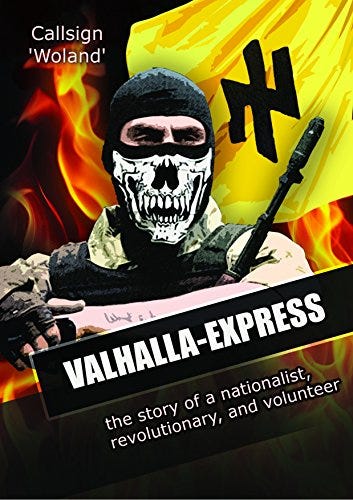Coups and consequences
I’ve decided to start posting more frequently, which means more informally. Hope that’s OK, and as always, I work for you guys, so I’ll trust you to keep me within the guard rails in the comments.
In the Substack Threads app, I posed the following question:
Scenario: The 2014 EuroMaidan revolution in Ukraine overthrew Viktor Yanukovych, the corrupt but legitimately-elected President of the country. Although there were hundreds of thousands of regular citizens demonstrating against the government, the coup d’etat was the work of a few small, violent nationalist organizations based in the western, European-facing part of the country. Yanukovych had been primarily elected by the Russian-speaking population in the eastern part of the country. In the aftermath of the coup, violent Ukrainian nationalist militias kidnapped, beat, tortured and killed hundreds, probably thousands, of suspected Russia-sympathizers, and the new government immediately took action to antagonize and marginalize the ethnic Russia part of the population (eg, removing Russian as a national language, and creating a holiday to honor the anti-Russian - and anti-Pole, and anti-Jew, etc - fascist leader Stepan Bandera. Whether or not the US was directly responsible for orchestrating the coup, there was no doubt that the US backed it, had a decisive say in who served in the new government, and exercised a large degree of control over the politics of post-Maidan Ukraine. As a result of all this, the ethnic Russians in the east refused to recognize the new government, and when they came under military assault by the Kiev government, they appealed to Russia for help. Russian leaders since the fall of the USSR have consistently expressed concern for the fate of the 25 million Russians who had suddenly found themselves citizens of foreign countries in 1991. Moscow, under both Yeltsin and Putin, has always felt an obligation to ensure their political rights were protected, and of course in this case they agreed to come to the aid of the ethnic Russian separatists in Donbas once they came under attack by the Kiev government.
Questions (I would like your input on these questions as well. I have my own feelings, which may be evident by my framing of the question, but I am trying to take the temperature of everyone else, because how you answer these questions goes a long way to explaining how you view the war in Ukraine):
Were the ethnic Russians in east Ukraine under any obligation to accept a government installed by a violent coup d’etat backed by a foreign government?
Under these circumstances, is Russia justified in intervening to protect ethnic Russians across the border in east Ukraine? If not, what threshold would have to be crossed to justify intervention?
An analogy to frame the question might be: If the January 6 protesters (or AntiFa, if you like) successfully overthrew the American government, would the rest of us be obligated to follow it, and would foreign countries be obligated to respect existing arrangements, or are all bets off when an elected government is violently overthrown?
Another analogy: Would your assessment of who started the US Civil War change if a Southern candidate had won the 1860 election instead of Lincoln, only to be overthrown by a violent Republican mob? Would the South have then been justified in withdrawing from the Constitutional compact on the grounds that it had been irreparably violated? And would the coup government running the Union have been justified in attacking the South to prevent it?




